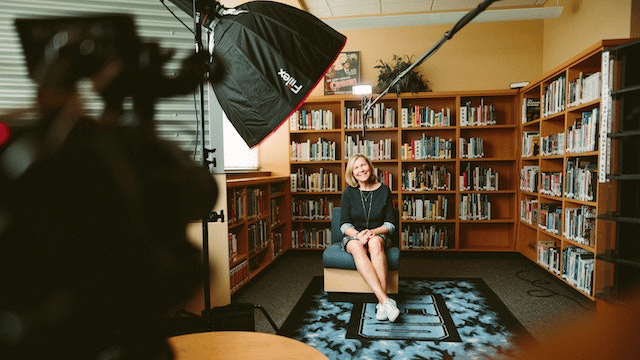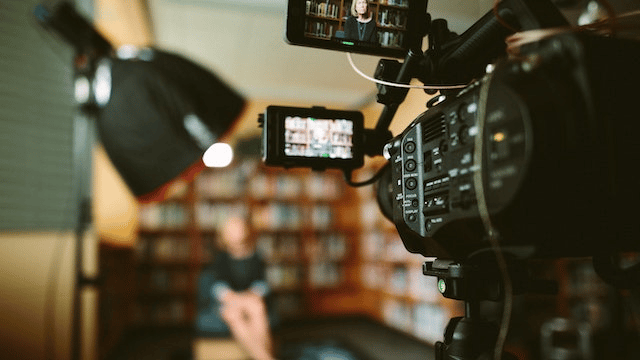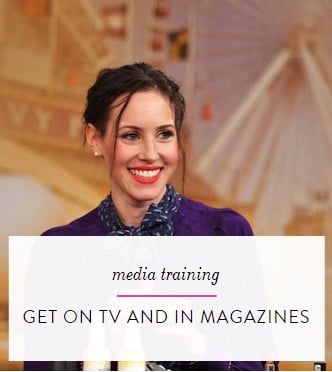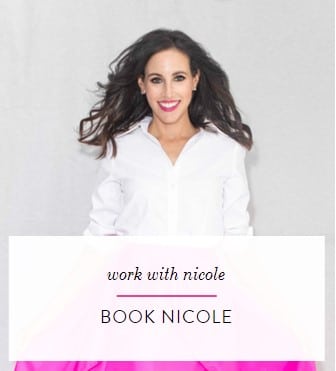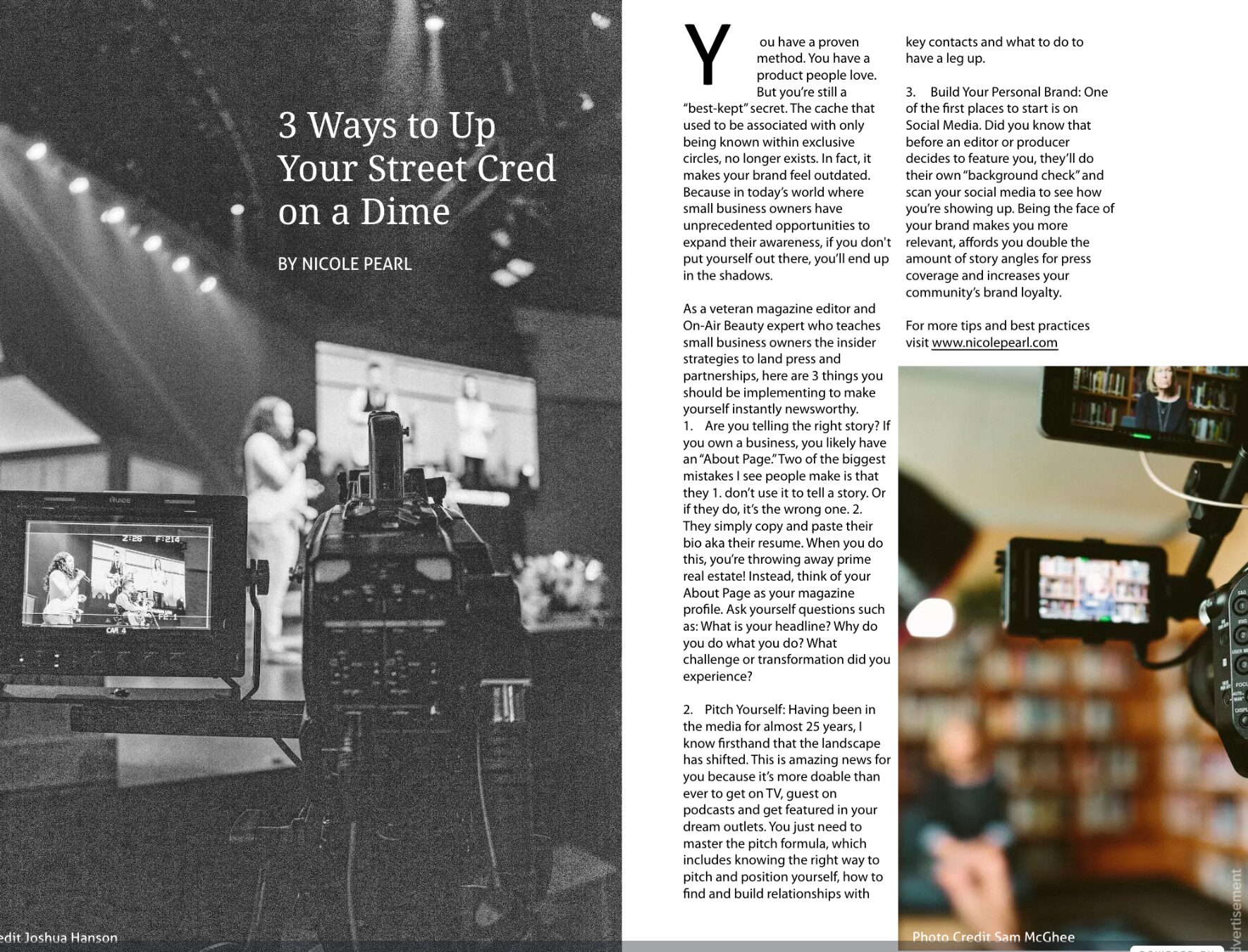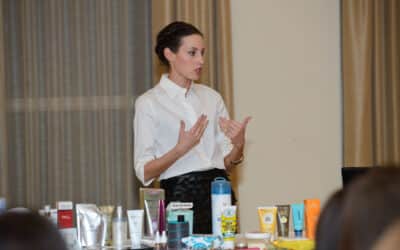What does it mean to be a spokesperson? What are the key traits and behaviors of an effective spokesperson? Why are spokespersons necessary for media relations? This blog post will explore what it takes to be an effective public representative for your company or organization. It will also provide some tips on how you can improve your own public speaking skills.
What Does It Mean To Be A Spokesperson?
A spokesperson is the public face of an organization. They are public relations professionals who are responsible for representing the company to the media and the public. As a spokesperson, you need to be good at media relations. This means you need to be able to create a strong media relations strategy and build positive relationships with appropriate media outlets.
A spokesperson can serve as your brand representative. An experienced spokesperson can be the face of your brand whether it’s for media opportunities, such as being the on-air talent for shows such as QVC or HSN, talk shows, radio interviews and more. It’s important to remember, that even if you’re not comfortable being the face of your brand, it is important to have one. If you are a business owner or brand founder who prefers for someone else to be the public face of your brand, hiring the right spokesperson is essential for putting your brand in the best light.
Why Is A Spokesperson Necessary For Media Relations?
Here are three reasons why a spokesperson is necessary for media relations:
Credibility: Spokespersons are PR professionals or public speakers who can help businesses look more credible to the media and who can represent your brand. If you are constantly fielding calls from reporters and trying to explain your company’s position, it can be difficult to come across as credible. However, if you have a designated spokesperson who can speak on your behalf, it will make it much easier for reporters to take you seriously.
Improved Response time: Having a spokesperson can help improve your response time. If you are trying to handle media inquiries on your own, it can be difficult to get back to reporters in a timely manner. However, if you have someone whose sole job is to handle media relations, they will be able to quickly respond to reporters’ inquiries and get you the media coverage you need.
Media coverage: Having a spokesperson can help you get more media coverage. If you are constantly trying to pitch reporters on your own, it can be difficult to stand out from the crowd. However, if you have a designated spokesperson who can connect with the media world on your behalf, it will be much easier for reporters to take notice of you and give you the coverage you deserve.
Practicing To Be A Good Spokesperson
Here are a few things you should practice consistently to be a great spokesperson
Bridging
Bridging is a technique that you can use to redirect a question to your key message. For example, if you’re asked a question about your organization’s funding, you could say something like, “That’s an important issue, but what’s even more important is the work that we do to help our clients.” This answer doesn’t directly address the question, but it does allow you to talk about your key message.
Body Language
Standing up straight, maintaining eye contact, and avoiding fidgeting or crossing your arms will make you appear more confident, relaxed, and sincere. Here are some general pointers:
- Stand up straight with your shoulders back, but avoid looking stiff.
- Make eye contact with your audience members, but don’t stare at anyone for too long.
- Use facial expressions to show emotion and interest, but don’t overdo it.
- Keep a pleasant, open expression and avoid frowning too much (take caution here, you don’t want to give off the impression of a big grin either).
- Relax your hands at your sides or use gestures to emphasize points, but avoid fidgeting or flinging your arms arounds.
- Dressing in a way that emphasizes the difference between yourself and your audience is not advised. When choosing what to wear, primary colors and jewel tones always look best on camera and in photos.
- Most importantly, remember to breathe!
Delivery
Your delivery should be clear, concise, and well-organized. Here are some tips:
- Start by telling your audience what you’re going to tell them (introduction).
- Tell them (body).
- Tell them what you told them (conclusion).
- Don’t use filler words like “um” or “like.”
- Don’t speak too quickly or too slowly.
- Practice speaking in front of a mirror or recording yourself so you can hear how you sound.
Useful Phrases
Here are some phrases that can be helpful when you’re not sure what to say:
- “That’s a great question.”
- “I’m not sure, but I can find out for you.”
- “That’s outside of my area of expertise, but I can put you in touch with someone who can help you.”
- “We don’t have all the answers yet, but we’re working hard to find them.”
- “I’m sorry, I can’t comment on that at this time.”
- “Thank you for your question.”
Aside from what’s listed above, you can be understood more easily if you communicate your message effectively. Reporters may take notes at times; assist them by adding pauses and speaking clearly and concisely, so they don’t have to ask you to repeat yourself.
When you respond to questions, make sure to concentrate on your key message (more about this below). Emphasize it with intonation and gestures while doing so. It’s a good idea to record yourself to detect any communication skills that need work.
Also, get comments from others, so nothing slips through the net. But most importantly, remember to breathe!
Key Messages
When you’re communicating with the media, it’s important to stick to your key messages. Your key messages are the points that you want to share about your issue or organization.
If you’re ever asked a question that isn’t related to your key messages, try to find a way to bring the conversation back to your key messages (Bridging). This will help you stay on track and ensure that your message is getting across.
How To Create A Key Message:
Creating key messages is an important part of effective communication. Here are some tips for creating key messages:
1. Keep it simple
2. Be clear about what you want to communicate
3. Make sure your message is relevant to your audience
4. Give your message a personal touch
5. Test your message before you use it
Remember, key messages are important, but they’re not the only thing you need to communicate. You also need to be able to tell your story and answer questions from the media.
How To Improve Your Skills As A Spokesperson
Here are some ways to improve your skills as a spokesperson:
Do Your Research
Know your stuff. Before you step in front of the microphone or cameras, make sure you are thoroughly familiar with the topic at hand. If you’re not, it will show, and you will lose credibility quickly.
Always Be Prepared
Have a clear understanding of the message you need to communicate and be prepared to deliver it in various ways. Think about how you can best convey your message so that it resonates with your audience.
Additionally, you should always be prepared for questions from the media. As we said earlier, it’s important to have a few key messages that you want to communicate and ensure that you know how to answer tough questions. Be aware of the types of questions that might be asked, and practice your answers ahead of time. That way, you’ll be less likely to be caught off guard, and you’ll be more confident in your responses.
Work On Your Public Relations Strategy
As a public relations professional, you should have a strategy for how you will approach the media. This includes figuring out what kind of relationships you want to build with reporters, what kind of information you want to share, and how you will communicate with the media. You need to be strategic about your interactions with reporters if you want to be a successful spokesperson.
Know Your Audience
It’s crucial to know who you’re speaking to and adjust your language and approach accordingly. You should also think about what issues are important to them and what information they need in order to make a decision.
Learn How The Media Works
The media can be a powerful tool, but it can also be unpredictable. It’s important to understand how media coverage works and how you can work with media contacts to get your message out there. Various media tools you can use as a spokesperson include press releases, events, media relations, and social media.
Never Stop Telling Your Story
Telling your story is one of the most important things you can do as a spokesperson. Never stop sharing your message, and always be looking for new ways to tell it. Be passionate about it. If you’re not passionate about what you’re talking about, your audience won’t be either. Show that you believe in your message and be enthusiastic about sharing it.
Know When To Stop Talking
It’s important to know when to stop talking. If you keep talking, you may say something that you shouldn’t or that could be misconstrued. If you’re feeling flustered or if you’re not sure how to answer a question, it’s better to take a pause and collect your thoughts. You can also ask for clarification if you need more information.
Learn To Deal With Fake News
In today’s age of social media, it is more important than ever to learn how to deal with fake news. As a spokesperson, you need to be able to quickly identify and correct false information. You also need to be prepared for when reporters try to twist your words. If you can handle these situations well, you will be a great spokesperson.
Be A People Person
As a Spokesperson, you will need to build mutually beneficial relationships with members of the media. What this means is that you essentially need to be able to build rapport and trust with reporters. If you can do this, you will be a great spokesperson.
Be Careful With Social Media
Be cautious about what you post on social media. Once something is online, it’s there forever. If you use social media to communicate with the press, make sure that you’re professional and respectful. And remember, a social media post can be seen by anyone, so don’t say anything you wouldn’t want your boss or your grandmother to see.
Seek Out Opportunities
Finally, don’t wait out opportunities; go out and seek them. If you want to get better at communicating with the media, look for opportunities to do so. You can volunteer to be a spokesperson for your organization or offer to give interviews on topics you’re knowledgeable about. The more experience you have, the more comfortable you’ll be when dealing with the media.
What To Avoid As A Spokesperson
Here are a few things to avoid as a spokesperson:
Don’t Say Yes All The Time: Don’t just agree with everything the interviewer says. If you do, you’ll come across as insincere. Instead, take the time to consider their questions and give honest answers thoughtfully.
Don’t Dodge Questions: If you’re asked a difficult question, don’t try to dodge it. This will only make you look evasive and like you have something to hide. Instead, take a deep breath and answer the question as best you can.
Don’t Get Defensive: If you get defensive, you’ll only make the situation worse. Instead of getting defensive, try to stay calm and focused on your message.
Don’t Criticize Others: Criticizing others, even if they deserve it, will only make you look bad. If you must criticize someone, do it in a constructive way.
Conclusion
Being a spokesperson is not an easy task. There is a lot of pressure to be perfect and to always have the right answers. However, by following these tips, you can increase your chances of success. Just remember to be prepared, know your target audience, and never stop telling your story.

